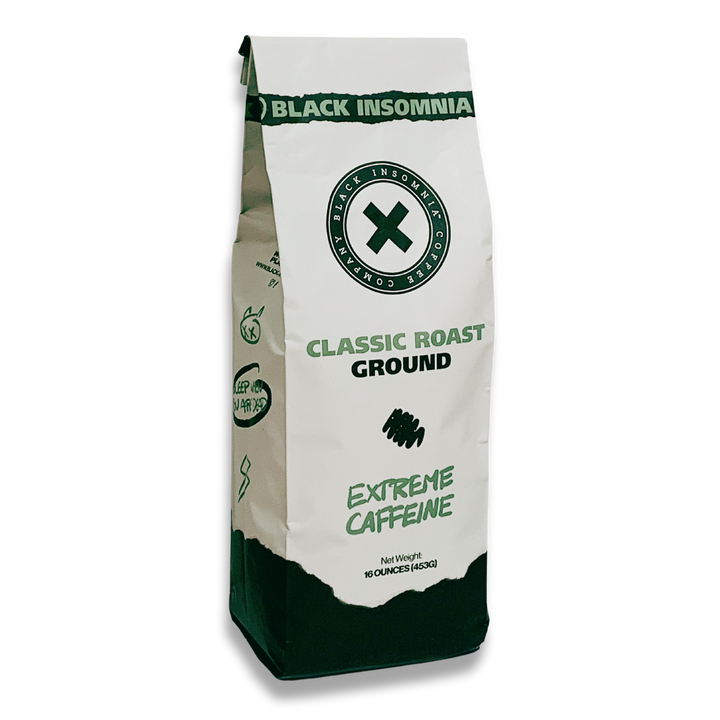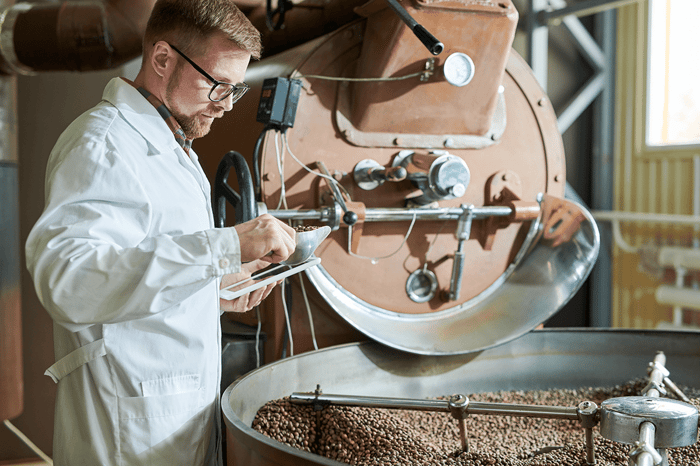Have you ever heard someone refer to oxidation in relation to coffee? If you haven't, don't worry—it's not as complicated as it sounds. Oxidation is a natural thing that all coffee beans (or grounds) undergo. But what is coffee oxidation?
Let's start with the second word, "oxidation.” A scientific definition of oxidation would go something like this:
Oxidation is defined as a type of chemical reaction where one or more electrons are lost.
Probably not what you would've guessed, right?
When most people think about oxidation, what probably comes to mind is something more like... say... the rusting of iron. Not just losing electrons.
Personally, I don't really like to think about my coffee losing atomic particles—or rusting, for that matter. One sounds radioactive, the other sounds gross, and frankly, I find both ideas offensive. But hey, I didn't design the universe.
So to recap: oxidation is the loss of electrons from a molecule.
Now, in coffee, oxidation occurs when oxygen molecules, in the air as well as the water you use to brew it, come into contact with compounds in the coffee. Even if you made coffee in an airless container, oxidation would still occur due to the oxygen molecules dissolved in the brewing water. (Source)
So just like how a cut apple turns brown when exposed to oxygen in the air, coffee beans start to oxidize when they're exposed to oxygen.
Now, why does any of this matter? Who cares about oxidation and coffee?

Well it matters if you care about stale coffee, because this chemical process is what causes coffee to go stale. (Hey, some people don't care about stale coffee. Somebody's buying those gas station brews, after all.)
The compounds in coffee that are affected by the oxidation include the oils and aromatics that—under normal, non-oxidized circumstances—contribute to coffee's subtle, complex, and generally bitchin' flavors.
When these compounds oxidize, they change into new stuff that have different—and generally less desirable—flavors. (If you disagree, and find these type of flavors more desirable, keep it to yourself. I don't want to know you any more than the weirdos who only like hot soda.)
So anyway, when those oils, acids, and aromatic compounds start to degrade, the result is flavor that's flat, muted, and just plain old boring.

At higher heats, oxidation occurs much more quickly—which is part of why cold brew doesn't go stale as quickly. But even a once-mighty cold brew will eventually succumb to the ravages of time, especially if left unrefrigerated for long enough.
So there you go. Oxidation is the rusting of coffee. I mean, more or less. And that’s why they say, “rust never sleeps.” Something like that.
The important thing is that oxidation is responsible for making your coffee taste like crap. Unless it's crap in the first place.
In conclusion, oxidation is the enemy of delicious coffee, and should be avoided at all costs if you want your brew to taste its best.
I know it's tempting to get out the electron microscope and use micro-tipped forceps to try to flick electrons off your coffee beans—don't do it. It's not cool, rad, or fresh, and you'll just end up making a big mess of the university's microscope lab again.
Black Insomnia Extreme Caffeine - Strongest Coffee in the World

$19.99
The Strongest Coffee in the World Black Insomnia contains up to 4x more caffeine than other brands. Lab tested. Coffee-holics approved! Tired of being tired? Needing 4-6 cups of coffee just to feel sluggish by 3pm? Not anymore! Its time… read more






